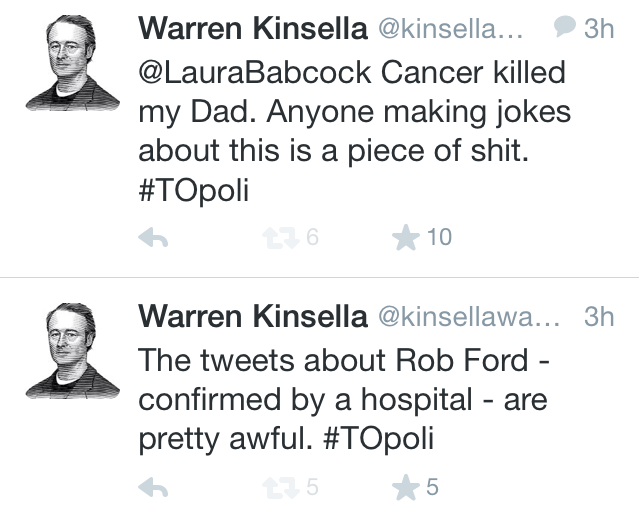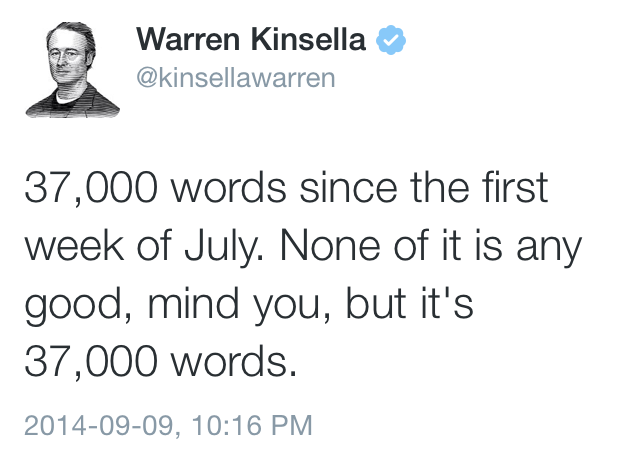What will (or could) happen next in Toronto politics
Rob Ford – who, by the by, was the only mayoralty candidate to contact me during my recent run-in with the underside of a bus – is facing a huge health challenge. You know that.
What you don’t know, perhaps, is that I had two epiphanies last night. Epiphany One, I was disgusted and appalled by the frankly evil things being said about Rob Ford’s predicament on Twitter. I said so, and I wasn’t alone. I firmly believe, this morning, that some of the things being said by self-described “progressives” will propel many, many sympathetic/empathetic voters into supporting Rob Ford again. It was that bad.
Epiphany Two – and I said this to myself, as I lay there sleepless and as the rest of you slept like babies – was the following: “Has something like this happened before?”
Well, yes, of course. It has. And it had a dramatic and extraordinary effect in both cases, one named Layton (who was being dismissed as a glib used car salesman until he got sick), and one named Bouchard (who was being reviled as a Benedict Arnold-nation-destroyer until he got sick).
Listen to my friends McLoughlin, Gauthier and Cobb, from a 2011 Citizen story:
“…the pundits all underestimated the Tao of Jack and his Walking Stick — the crutch that has become a Churchillian-like symbol brandished with increased frequency in Layton’s public battles against his political enemies.
“It looked like the beginning of the end of his political career,” said Ottawa communications specialist Barry McLoughlin. “We saw two things happen to him back to back, that showed his humanity. We saw him on our screens looking gaunt, older, frail and very vulnerable.”
Then, adds McLoughlin, Layton suddenly connected with Canadians in a deeper way.
“He struck an emotional chord just by the way he faced up to his setbacks and went about his work. He appeared in the House of Commons after his hip surgery and showed he was a fighter. People developed an emotional relationship with him that wasn’t there before.”
Something similar happened between Quebecers and Lucien Bouchard when the former Bloc Quebecois leader contracted flesh-eating disease in 1994, added McLoughlin.
“It’s not about the cane,” he said, “but about the humanity it shows.”
Bernard Gauthier, a communications and audience research specialist at Delta Media in Ottawa says the walking stick has become a defining element for Layton.
“It’s become part of the Jack Layton brand, along with his white moustache,” said Gauthier. “I said at the beginning of the campaign that the walking stick will go one of two ways for Jack Layton: it will hinder him because it could suggest to people that he is not at the peak of health or it will engage people.
“It’s made him more endearing and empathetic.”
At this point, it will be very difficult for anyone to call Rob Ford names anymore, as John Tory has been doing. That’s one thing.
This is the other: all that Rob Ford need do is show up – and look vulnerable and human and brave, as Layton and Bouchard did – and something like this will happen:
He will win.



